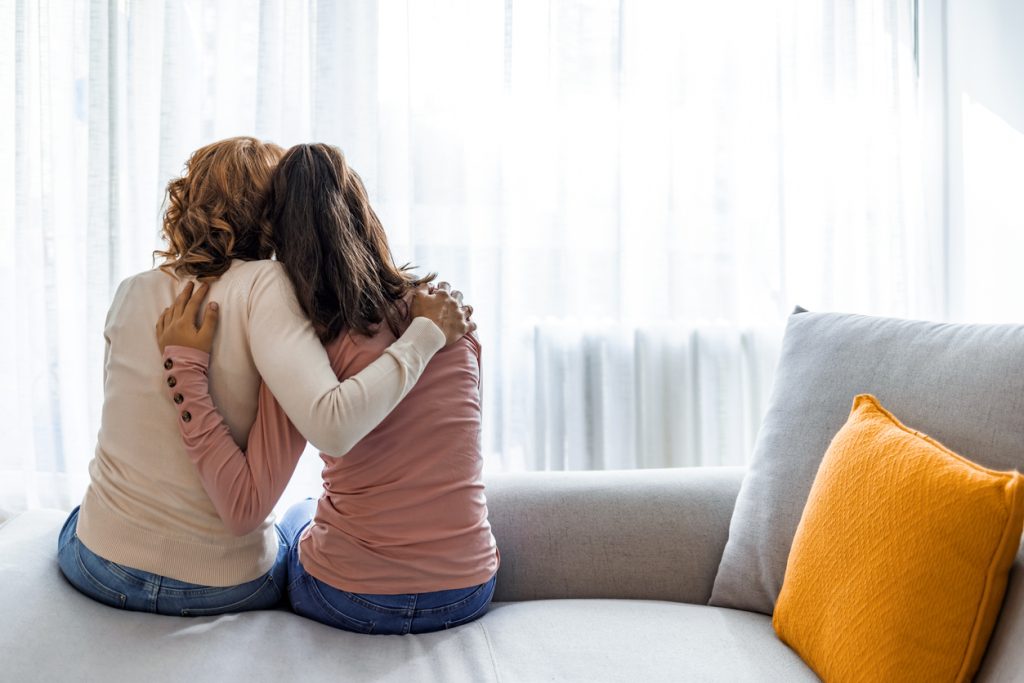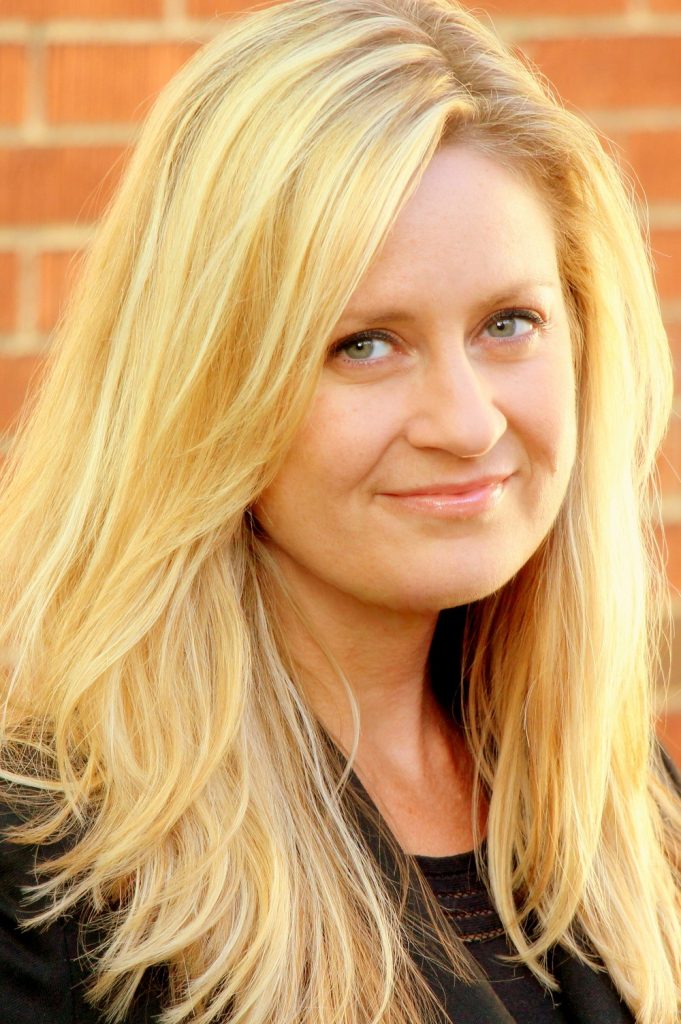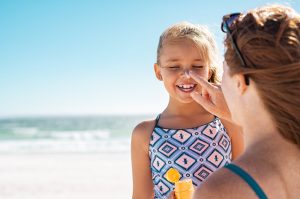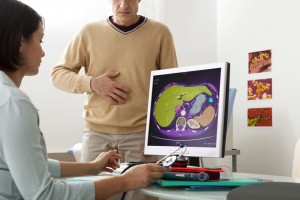Finding Gratitude for My Daughter’s Anorexia Diagnosis

Once upon a time I had a teen daughter who was sweet and funny and creative and kind. Since middle school, she struggled with friendships and social connections. She wanted to make some “healthy” changes to her lifestyle, so she became vegetarian and started running. A few months later she was in the hospital with an Anorexia diagnosis.
It’s easy to think that diet culture and desire for control are the main Anorexia causes. In fact, those two things aren’t actually causes at all. Until my (then) 16-year-old daughter’s Anorexia diagnosis, I figured eating disorders weren’t all that serious. And all anyone had to do if they lost too much weight was eat. Just eat. And aside from incredibly rare, ill people, is there really such a thing as too thin?
And before I go any further, here the biggest fact about Anorexia that I had never, ever heard before. Anorexia Nervosa is a mental illness but it is also biological. There is strong evidence that supports an inherited predisposition for eating disorders. There are a number of factors that contribute to developing an eating disorder, but it’s genes that flip the switch towards a full-blown illness. Living in a calorie deficit flips that switch. If dieting alone caused Anorexia, everyone who dieted would be Anorexic.
Last winter my daughter had a hyponatremic seizure from overhydration. We went to the ER of our local hospital where she was put through a wide range of tests and admitted to the pediatric ward in the morning. Overnight her weight dropped by 4kg. When she was admitted, her BMI (a notoriously problematic measure) was 14.9. I am reluctant to share height and weight numbers because that may be triggering for some and inspiring for others (as upsetting as that is). My 16 year-old daughter literally starved herself almost to death right in front of my eyes.
And yet, as we recently wrapped up at her treatment program at our local children’s hospital, one of the things we had to do as parents was write down reasons we were grateful for her eating disorder. It seemed like a ridiculous ask. How on Earth were we to be grateful for our daughter’s Anorexia? And yet, when we put pen to paper, it was easier to find the reasons why we were grateful than it was to find the reasons why we hated it.
Some Reasons We Are Grateful for Our Daughter’s Anorexia Diagnosis:
Pediatric & Adolescent Medicine Specialists
Our daughter’s Anorexia diagnosis brought us into a world of pediatric and adolescent medicine that we were unaware of and now are wholly grateful it exists. Let me be clear, care for Eating Disorders in Canada is woefully lacking and difficult to access. And it’s expensive. The first line of defence is Family Based Treatment (FBT) where parents take 100% control of their child’s nutrition. Although this is done with the support of a doctor and a range of professionals, refeeding a malnourished child is a full-time job. And it’s hard… really, really hard. There are three phases of FBT and we were not able to move past Phase 1.
Eventually we were referred to the Eating Disorder Day Program of our local children’s hospital. We also received a diagnosis of ASD (Autism Spectrum Disorder) that came about thanks also to a referral from our adolescent medicine specialist. We are very, very fortunate to have the access we did. It was also due to the severity of our daughter’s case that we received such a level of support. I am well aware that our health care system in Canada is far from perfect. I am also incredibly grateful for the people who choose to work in this field.
Personal & Familial Strength
Caring for a person with an Anorexia diagnosis is not for the faint of heart. And if you’re faint of heart you’ll need to toughen up fast. My mother’s mental illness and subsequent death by suicide is something that prepared me for the fight of my life. My husband had his own childhood to process which bolstered him against ED. And our son sacrificed a lot in the name of supporting his big sister and his parents during a year that is difficult enough for young people as it is.
We all have a lot of healing to do. It’s going to take a long time. As a family I like to think we’re not broken, just bent (thanks, Pink). Thanks to all the therapy we’ve done and are continuing to do, we have a common vocabulary and skills to use to get through difficult moments together.
DBT Skills
A major piece of our daughter’s treatment is learning DBT skills. Dialectic Behavour Therapy (DBT) is not just for those with significant mental health issues although it seems to be marketed that way. I wish I had learned about DBT earlier as I believe the skills taught are useful for anyone and especially anyone raising kids. They help tremendously with emotional regulation and coping during tough times.
My Own Relationship with Weight and Food
It is safe to say I have had an unhealthy relationship with food and engaged in disordered eating for most of my life. I tried really hard to create a different relationship with fitness and food with my kids. I don’t feel like I have entirely failed in that mission however I certainly wish I had approached things differently. I’ve learned a lot. I’ve learned about ARFID, which is when “picky eating” becomes something serious. I learned that there’s no such thing as junk food, and making judgements about food and who does or doesn’t eat certain foods is — in many cases — ableist, classist, and most definitely problematic.
Our Puppy
During one of our therapy sessions our daughter had to make a list of things she wanted or wanted to do that had nothing to do with what she thought her eating disorder was doing for her. One of the items on that list was owning a dog. I had a dog allergy that had seemingly subsided over the years, so the search was on. The absolute last thing we needed at the time was more work, and seeing the smile on our daughter’s face made the effort 100% worth it. We would never have considered getting a dog. Now we can’t imagine life without our precious Mickey.
Am I really grateful my daughter’s Anorexia diagnosis?
Of course I wish my daughter had not developed Anorexia. An eating disorder is cruel. It tortured her; it won’t allow joy; it isolated her and our family; it robbed her of the things she loved to do. It stalled her education and made her question her creativity and abilities.
I wish I could erase the pain of the past years — the years of her illness and the years of unhappiness that led to what was — as strange as it may seem — a source of comfort for her. A starving brain is a quiet brain. It is focused on keeping the heart beating and the lungs breathing. Anxiety and sensory issues are silenced in a malnourished brain, and a (false) sense of control is instilled in a world where nothing makes sense.
An Anorexia Diagnosis May Not Be a Life Sentence
Now we know what we didn’t know. And now we know what we need to do to further her recovery and support her physical and mental health. And now we know how to see the signs and hopefully help anyone else who may be worried about their kids. We are so fortunate that it appears as though there is no permanent physical damage. Starvation in the teen years can lead to fertility issues, permanent bone loss, and heart damage. Not unlike someone with Diabetes or another chronic condition, she may always need to be mindful about eating regularly monitoring activity.
Every day I pray she will the the one in five who 100% recovers. The heartbreaking and terrifying reality for those with an Anorexia diagnosis is 20% fully recover, 60% suffer at some level for the remainder of their lives, and 20% die.
For more information and resources, please visit the National Eating Disorder Information Centre (NEDIC)















